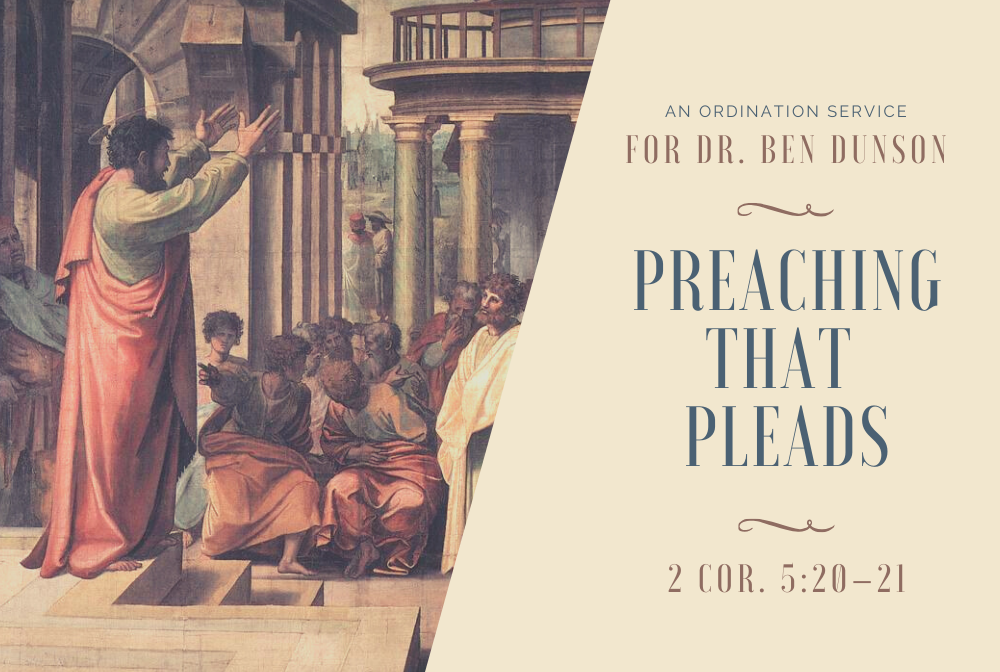
Earlier this week, while on a run with my children, we passed by a house that was clearly burning a friendly wood fire inside. The smell wafted out from the chimney and seasoned the trail before us. The scent immediately summoned memories of Christmases of years gone by spent at my grandparents’ home in Michigan. I have vivid memories of Grandpa Kuntzman regularly throwing a log on the fire, arranging it just right, and then poking and prodding the fire until it was fully aflame.
What our text tells us is that Christ’s church needs preachers who are lit with love for Christ (2 Cor. 5:14). We need heralds aflame with Christ and on fire to implore everyone, “Be reconciled to God.” Now, Dr. Dunson and Reformed Theological Seminary cannot put the fire in the homiletical fireplace—that’s the Spirit’s work. But they can, and must, throw logs on the fire, poking it and stoking it through their prayers, counsel, and instruction. They must do it because training men to preach the Gospel is one of the most essential jobs on earth.
On the chance that you don’t yet agree with that last statement, let’s pull together the two proofs in our passage.
Training men to preach the Gospel is one of the most important jobs on earth because of . . .
The place of God’s voice in preaching. When God’s preacher speaks, God speaks. When Christ is proclaimed through the preacher, none other than Christ is preaching. This is why Paul can say in Ephesians 2:17 that Christ, who never preached physically in Ephesus, nonetheless, “Came and preached peace to you who were far off and peace to those who were near.” If you’re a Christian, this means you must have a proper view of the preacher. Some of you need to decrease your view of the preacher; you’ve put him on too high a pedestal. He is not a messiah; he is God’s authorized messenger. He is not a savior; he is God’s ordained servant. But, some of you must have the humility of repentance and raise your esteem for preaching. Instead of responding to Christ in the preached word, you’re too busy ripping the pastor apart in your mind. If you understand our text correctly, that means you’re tearing the very word of Christ asunder. Such a truth should cause you to tremble.
The passion required of God’s servant in preaching. “I appeal,” and, “I implore,” Paul says. Such passionate pleading is only needed if the message is that important, and is that eternally significant. And it is.
Let us then have preachers who are on fire for Christ and preach accordingly. The story is told that when William Sangster was interviewing a candidate for the ministry, the nervous young man explained that he was quite shy and not the sort of person ever to set the River Thames on fire. “My dear young brother,” responded Sangster, “I’m not interested to know if you could set the Thames on fire. What I want to know is this: if I picked you up by the scruff of your neck and dropped you into the Thames, would it sizzle?”
Give us preachers, we cry, who are on fire for Christ and preach His word of reconciliation.
— This post is adapted from my recent sermon, “Preaching that Pleads,” on 2 Corinthians 5:20–21.
